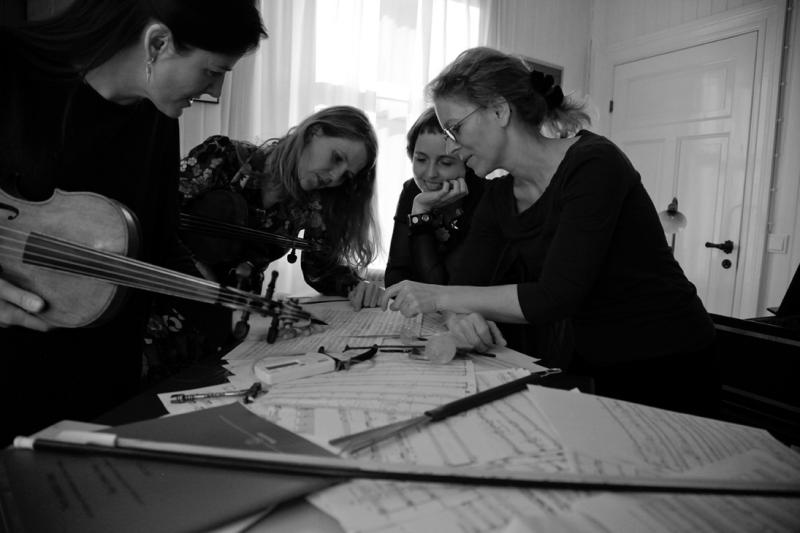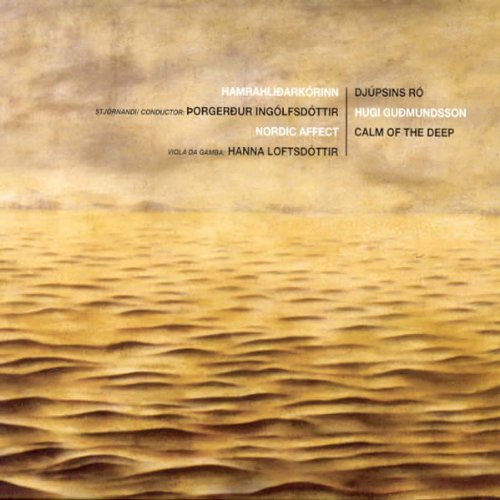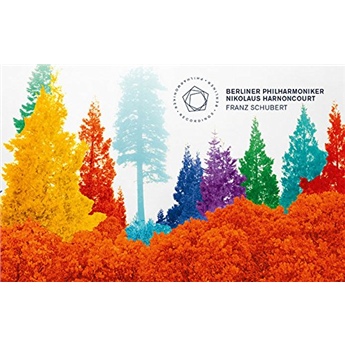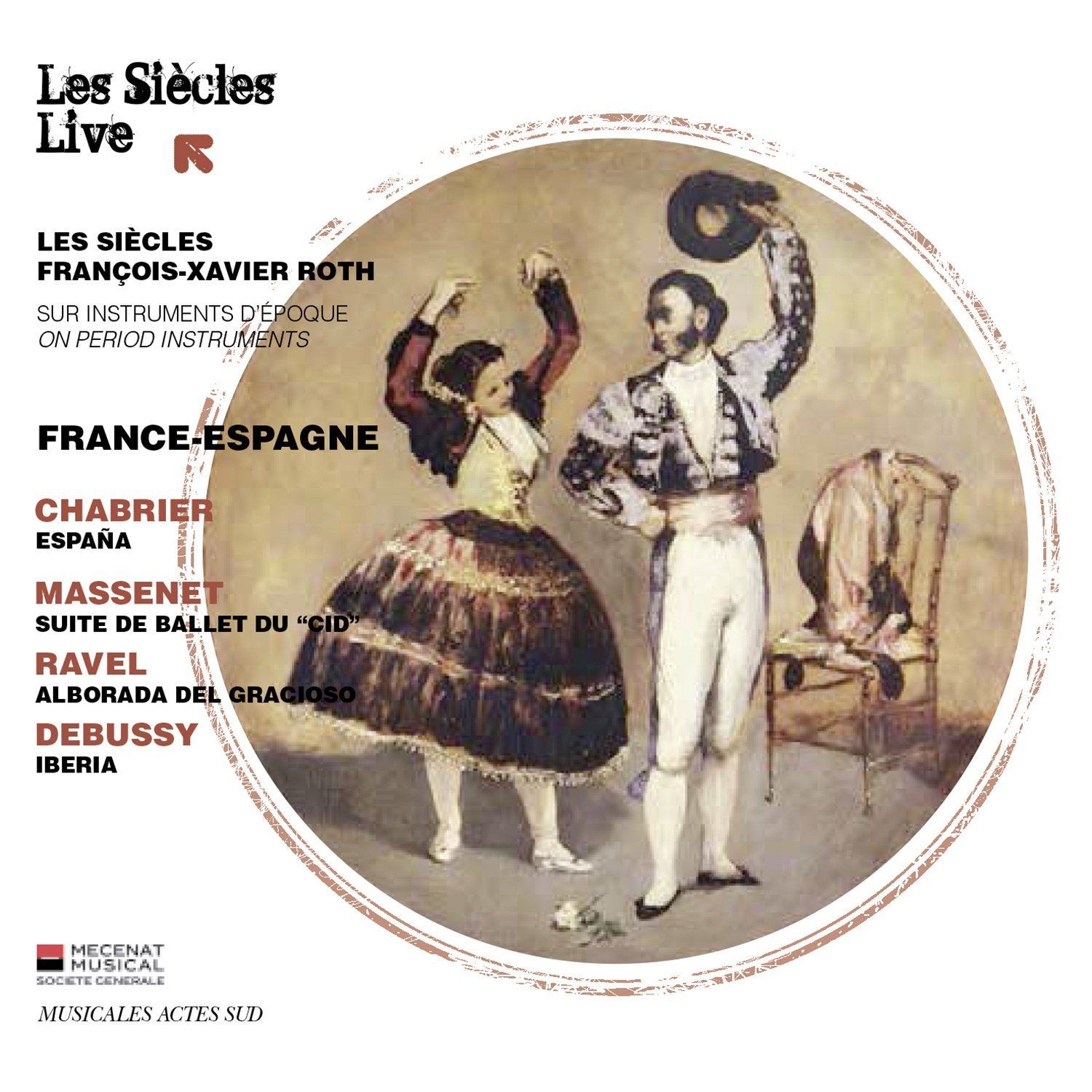Classical CDs Weekly: Hugi Guðmundsson, Schubert, Les Siècles | reviews, news & interviews
Classical CDs Weekly: Hugi Guðmundsson, Schubert, Les Siècles
Classical CDs Weekly: Hugi Guðmundsson, Schubert, Les Siècles
Contemporary repertoire from Iceland, Viennese symphonies and Spanish music from France

 Hugi Guðmundsson: Calm of the Deep The Hamrahlíd Choir/Þorgerður Ingólfsdóttir, Nordic Affect/Guðni Franzson (Smekkleysa)
Hugi Guðmundsson: Calm of the Deep The Hamrahlíd Choir/Þorgerður Ingólfsdóttir, Nordic Affect/Guðni Franzson (Smekkleysa)
Calm of the Deep introduces us to contemporary Icelandic composer Hugi Guðmundsson. Who sees his music as “a dialogue between old and new, past and present”. There are many magical things on this disc. Like To This My Thoughts Turn All My Days, based on an anonymous melody first notated in 1742. Guðmundsson's brilliant recasting treats the tune with utter respect. The harmonies are often disarmingly simple, though the best moments have the melody confidently floating above dense clusters of sound. Two other choral pieces are cleverly-realised palindromes. One of them, Iceland's Clock is particularly strong, the texts's “soothing chimes” especially well-suited to a work which unwinds with clockwork precision. Tuned percussion is cleverly deployed, and there's astonishingly confident singing from Þorgerður Ingólfsdóttir's Hamrahlid Choir too – veering between tender whispering and raw-throated exuberance.
The choral numbers are interspersed with a selection of Guðmundsson's instrumental music. The dialogue with the past is demonstrated most obviously in the three movements of Händelusive, each one based on material from Handel's Water Music. They're played by Nordic Affect on solo strings, flute and harpsichord, and they're wonderfully disquieting; at times it's like hearing Baroque music played backwards, the suite closing with a subversive, downbeat "Hornpipe". Linking the choral and instrumental pieces are Hanna Loftsdóttir's renditions of Guðmundsson's gravely beautiful Four Intermezzi for Gamba, the second of which is an extraordinary brief sequence of plucked notes. A superb collection, classily presented and magnificently performed. Full texts and translations are provided.
 Schubert: Symphonies 1-8, Masses 5&6, Alfonso und Estrella Berliner Philharmoniker/Nikolaus Harnoncourt (Berliner Philharmoniker)
Schubert: Symphonies 1-8, Masses 5&6, Alfonso und Estrella Berliner Philharmoniker/Nikolaus Harnoncourt (Berliner Philharmoniker)
There are lots of Schubert symphonies around at the moment. A posthumous Great C major from Claudio Abbado has just appeared on DG, and Jonathan Nott's Bamberg cycle will be reviewed here next month. Nikolaus Harnoncourt's newly released set is the third release on the Berlin Philharmonic's own label, and it's the most extravagantly packaged box set I've seen. So luxurious that you feel obliged to open it up wearing silk gloves: it's a luxury object which you'll probably want to declare with your home-insurer. In an age when we can download almost anything for a pittance, is it worth paying above the odds for performances taped over a decade ago? I'd say yes – there's loads to enjoy here. Harnoncourt audibly loves this music, cannily showing us where these symphonies fit into the 19th century tradition. Schubert's fondness for Haydn is made clear, but the grander moments show us how much Brahms and Bruckner were in his debt. The wittier corners in Symphonies 3, 5 and 6 are delightful. We're using the renumbered editions here, so Harnoncourt's heartfelt, urgent B minor symphony is now No 7. Lower brass and strings are magnificent, as they are in No 8; the string playing in Schubert's protracted finale is astonishing incisive. Rarely do you hear such large forces play with such lightness.
We also get the 5th and 6th Masses in bold, theatrical performances, with incisive singing from the Rundfunkchor Berlin. No 6's Agnus Dei is magnificent, the bell-like brass chords ringing out. As a generous bonus there's Schubert's opera Alfonso und Estrella, which though dramatically inert is highly enjoyable as an extended sequence of lyrical numbers. Dorothea Röschmann and Kurt Streit convince in the lead roles, though it's Harnoncourt's energy which brings the piece to life. Full texts are provided, plus a Blu-ray audio disc and a high-resolution download code.
 France-Espagne: Music by Chabrier, Massenet, Ravel and Debussy Les Siècles/François-Xavier Roth (Actes Sud)
France-Espagne: Music by Chabrier, Massenet, Ravel and Debussy Les Siècles/François-Xavier Roth (Actes Sud)
François-Xavier Roth's versatility is a thing to wonder at. He performed Stravinsky's Rite on authentic instruments at last year's Proms, and returned a few days ago with his soon-to-be-made-extinct SWR Baden-Baden and Freiburg Orchestra. He can declutter the densest contemporary repertoire, and he's also at home in the mainstream, demonstrated here with his period band Les Siécles serving up a selection of Spanish orchestral music. As written by French composers. Chabrier's easily-overlooked España has a bubbly lightness. It's a fun piece, but a clever one too, Les Siécles making light of the tricky cross-rhythms. The playing is delectable; listen out for the pungent narrow-bore trombones, and a superb harp.
Ravel's Alborado del Gracioso succeeds for the same reasons – sharp rhythms, impeccable wind solos and plenty of humour. The tuttis have loads of impact but don't bludgeon us. There's a magnificent, very French-sounding bassoon at the work's quiet centre. It's hard to believe that any of the pieces on this disc would have been so well-played when first performed. Take Ravel's magical divisi string-writing, where every soft note is audible. Debussy's Iberia gleams. How often does one feel like applauding castanets and tambourine? Sample the opening of "Le Matin d'un jour de fête". Or the cheeky high clarinet theme a few minutes into the same movement. Less familiar is the ballet music which Massenet extracted from his opera Le Cid. The best bits are as good as anything in Bizet's Carmen, including a slinky habanera and a delicious last movement which Roth whips up into a frenzy. Each new disc by this team delights, and this is no exception.
Share this article
The future of Arts Journalism
You can stop theartsdesk.com closing!
We urgently need financing to survive. Our fundraising drive has thus far raised £49,000 but we need to reach £100,000 or we will be forced to close. Please contribute here: https://gofund.me/c3f6033d
And if you can forward this information to anyone who might assist, we’d be grateful.

Subscribe to theartsdesk.com
Thank you for continuing to read our work on theartsdesk.com. For unlimited access to every article in its entirety, including our archive of more than 15,000 pieces, we're asking for £5 per month or £40 per year. We feel it's a very good deal, and hope you do too.
To take a subscription now simply click here.
And if you're looking for that extra gift for a friend or family member, why not treat them to a theartsdesk.com gift subscription?
more Classical music
 Classical CDs: Bells, birdsong and braggadocio
British contemporary music, percussive piano concertos and a talented baritone sings Mozart
Classical CDs: Bells, birdsong and braggadocio
British contemporary music, percussive piano concertos and a talented baritone sings Mozart
 Siglo de Oro, Wigmore Hall review - electronic Lamentations and Trojan tragedy
Committed and intense performance of a newly-commissioned oratorio
Siglo de Oro, Wigmore Hall review - electronic Lamentations and Trojan tragedy
Committed and intense performance of a newly-commissioned oratorio
 Alfred Brendel 1931-2025 - a personal tribute
A master of feeling and intellect
Alfred Brendel 1931-2025 - a personal tribute
A master of feeling and intellect
 Aldeburgh Festival, Weekend 2 review - nine premieres, three young ensembles - and Allan Clayton
A solstice sunrise swim crowned the best of times at this phoenix of a festival
Aldeburgh Festival, Weekend 2 review - nine premieres, three young ensembles - and Allan Clayton
A solstice sunrise swim crowned the best of times at this phoenix of a festival
 RNCM International Diploma Artists, BBC Philharmonic, MediaCity, Salford review - spotting stars of tomorrow
Cream of the graduate crop from Manchester's Music College show what they can do
RNCM International Diploma Artists, BBC Philharmonic, MediaCity, Salford review - spotting stars of tomorrow
Cream of the graduate crop from Manchester's Music College show what they can do
 Classical CDs: Bells, whistles and bowing techniques
A great pianist's early recordings boxed up, plus classical string quartets, French piano trios and a big American symphony
Classical CDs: Bells, whistles and bowing techniques
A great pianist's early recordings boxed up, plus classical string quartets, French piano trios and a big American symphony
 Monteverdi Choir, English Baroque Soloists, Suzuki, St Martin-in-the-Fields review - the perfect temperature for Bach
A dream cantata date for Japanese maestro and local supergroup
Monteverdi Choir, English Baroque Soloists, Suzuki, St Martin-in-the-Fields review - the perfect temperature for Bach
A dream cantata date for Japanese maestro and local supergroup
 Aldeburgh Festival, Weekend 1 review - dance to the music of time
From Chekhovian opera to supernatural ballads, past passions return to life by the sea
Aldeburgh Festival, Weekend 1 review - dance to the music of time
From Chekhovian opera to supernatural ballads, past passions return to life by the sea
 Dandy, BBC Philharmonic, Storgårds, Bridgewater Hall, Manchester review - a destination attained
A powerful experience endorses Storgårds’ continued relationship with the orchestra
Dandy, BBC Philharmonic, Storgårds, Bridgewater Hall, Manchester review - a destination attained
A powerful experience endorses Storgårds’ continued relationship with the orchestra
 Hespèrion XXI, Savall, QEH review - an evening filled with laughter and light
An exhilarating exploration of innovation in 16th and 17th century repertoire
Hespèrion XXI, Savall, QEH review - an evening filled with laughter and light
An exhilarating exploration of innovation in 16th and 17th century repertoire

Add comment